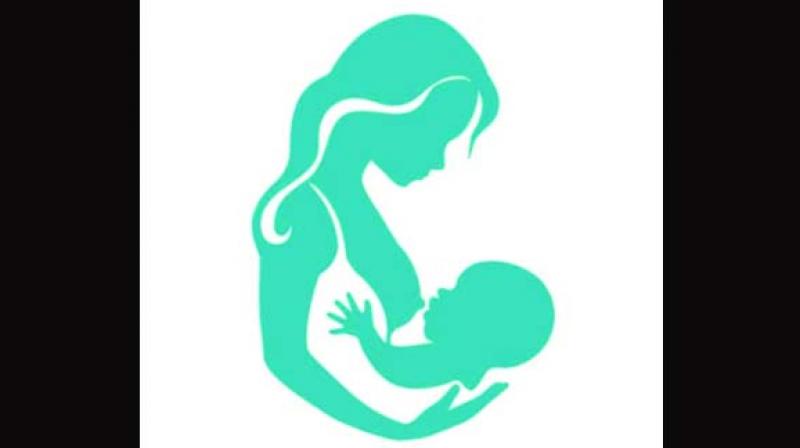Feeding baby during 1st hour of birth crucial
It can lower infection rate among infants, says study.

Hyderabad: Breastfeeding in the first one hour of birth is considered as golden hour where an infant receives colostrum or first milk that is rich in protective factors and also the bond between the mother and child gets strengthened but this is not happening nowadays due to a large number of C-sections and also cleaning women in normal deliveries.
Importance of golden hour is being stressed by World Health Organisation (WHO) as research has shown that it lowers the rate of ear infections, asthma, diabetes, childhood leukaemia and sudden infant death.
Dr S. Nagamani, Superintendent in Government Maternity Hospital at Nayapul said that the initiation in the first one hour is being demanded by WHO but there are practical problems at the hospital-level. “In C-section, the woman will be in sterile sheets and a gynaecologist stitches wounds while an anaestheist monitors dosage. There has to be a special place in an operation theatre and also a special nurse appointed to only work towards skin-to-skin contact in the first one-hour. In normal deliveries too, by the time a woman is cleaned and sent to the ward, it is at least 45 to 60 minutes. We need to have a special set of nursing staff for the initiation process,” the doctor said.
Currently, in India, only 41 per cent of women breast feed their children in the first one hour of birth. The gap is huge and the WHO is keen that the numbers must increase as institutional delivery is now 78 per cent in India. Both Andhra Pradesh and Telangana have 91.5 per cent deliveries in hospitals. Research states that during labour hours, a body experiences change and giving birth generates a chemical in the brain which increases the desire to nurture. Skin-to-skin contact and baby suckling releases hormones that help the mother connect to the child and the uterus too contracts and stops bleeding.
Dr Vishnuvardhan Reddy, senior neonatal consultant and paediatrician at Apollo Cradle explained: “In practice, we find that some of them do not feed the child for eight to nine hours due to various myths that lead to dehydration. There are many who give honey in the first one hour of life. Earlier, there was a belief that colostrum or first milk is not good and many of them would not give it to the baby. These are wrong practices.”
The problem at the hospital-level is that feeding is not considered a priority in pregnancy counselling.
Dr Preeti Sharma, senior paediatrician at KIMS Cuddles explained: “In various stages of pregnancy, counselling for initiation of breast feeding is done at the last minute. This is mostly during labour hours when the woman is already going through a lot of pain. This practice has to change and counselling for this has to begin much earlier so that they are aware and prepared for it. The dissemination of right information, with proper instructions, is important for the first time as young mothers have to understand how they are to feed and not let go the golden hour.”

